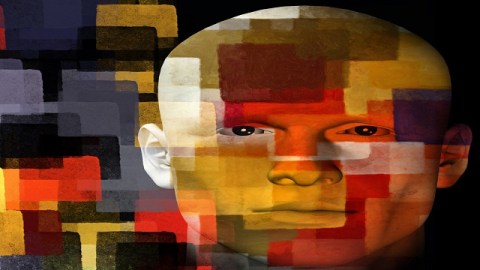Can We Train Away Schizophrenic Symptoms?

Schizophrenia is a complex and devastating psychiatric disorder that affects approximately one percent of people in the United States. It is best known for its outward symptoms: hallucinations, delusions and, at its most severe, psychosis. But schizophrenia’s associated cognitive deficits, including poor memory, attention, and decision-making abilities, are not only the earliest symptoms to appear but also the most resistant to current drug treatments. Now researchers at the University of California, San Francisco have demonstrated that computer-based cognitive training may help people with schizophrenia overcome those cognitive deficits and better monitor reality—and perhaps prevent the disease’s progression.
Traditionally, schizophrenia is treated with antipsychotic medications like Haloperidol, but these drugs do not alleviate all symptoms and also have harsh side effects. Antipsychotic drugs treat only the most glaring symptoms of psychosis and have very little effect on cognitive problems that also accompany the disorder, says Li-Huei Tsai, director of the Massachusetts Institute of Technology’s Picower Institute for Learning and Memory.
“We’re learning that the cognitive aspect of the disease, problems with memory and attention, manifest much earlier in patients than psychosis,” says Tsai. “But most individuals are not diagnosed without psychosis. It can make treatment difficult.”
Sophia Vinogradov, a psychiatrist at the University of California, San Francisco (UCSF), wondered, given the early onset of cognitive symptoms, whether treating those directly might work better. People with schizophrenia have trouble with “reality monitoring,” or synching their internal thoughts and feelings with the reality of the outside world. This lack of reality monitoring, as well as deficits in medial prefrontal cortex activation (mPFC), is linked to later psychosis. Perhaps by strengthening cognitive abilities, Vinogradov hypothesized, schizophrenics could better differentiate between internal thoughts and outside reality and reduce their vulnerability to psychotic episodes.
“In order to make the distinction between what’s really happening in the outside world versus what’s being generated by your own internal experiences accurately, the various cognitive information systems in your brain have to work very well together,” says Vinogradov. “You have to take in outside information, record it accurately and with a high degree of fidelity. You have to be able to monitor your internal thoughts, recognize they’re occurring internally, and remember them. Then you have to compare the inside with the outside. In a healthy brain, this happens without us even being aware of it. But in schizophrenia, the brain systems responsible for those kind of systems aren’t working very well at all.”
She hypothesized that the right brain training regimen that harnessed the brain’s natural plasticity and helped to strengthen these specific cognitive systems might help.
Vinogradov partnered with Michael Merzenich, a professor emeritus at UCSF and founder of PositScience, a company that provides brain training products, to create the video-game-like training program. Merzenich says that the training regimen is similar to PositScience’s flagship product, a program designed to promote healthy cognition as we grow older, but has been streamlined to focus on specific cognitive issues observed in schizophrenia.
“The tasks help improve perceptual and cognitive abilities both in language and in vision,” he says. “And the program also trains them explicitly in aspects of cognitive control. We also added several exercise strategies that we think will improve social cognitive abilities.”
Vinogradov and colleagues then compared a group of 16 people with schizophrenia who used the PositScience program for 80 hours over 4 months to a control group of 15 schizophrenics who played non-targeted video games for the same amount of time. They found that the training group showed significant improvement in reality monitoring tasks as well as increased mPFC activity—even six months after completing the training program. Participants in the training program also showed improved social functioning. The study appeared in the Feb. 23 issue of Neuron.
“Our data from earlier studies suggested that reality monitoring had strong contributions from more basic cognitive processes, but we were surprised at how strong the results in this study were,” she says. “But it shows that training can work—and it can work in ways that may have even more benefits than we originally suspected.”
Vinogradov cautions that while this approach is still in its infancy, the results suggest that the right computer-based training could work to bolster traditional drug treatments. She hopes further research will show that an initial intensive training program, with occasional booster sessions after completion, can help people with schizophrenia maintain jobs, avoid psychotic episodes, and improve their quality of day-to-day life. More ambitiously, she hopes that cognitive training may help those at high risk for schizophrenia avoid the disease altogether.
“The characteristic cognitive impairments of schizophrenia occur very early on in the disease,” she says. “We hypothesize that if we can improve cognitive systems through intensive computerized cognitive training then we may be able to reduce the risk of conversions prior to or during that first episode of psychosis.” Her laboratory is currently at work on a study testing the idea.
While Merzenich emphasizes that cognitive training cannot now replace medication, he also has high hopes for training paradigms. “I think this is going to revolutionize the treatment of this condition,” he says. “Ultimately, training—training that can correct the brain neurologically—is going to have more and more of a role to play.”
Tsai agrees that cognitive training is an intriguing new approach. “These are exciting results—and training may also help other disorders like phobias and post-traumatic stress disorder,” she says. “But the sample size is still quite small. We need to see how reproducible it is in larger populations before we draw any conclusions. But it’s possible that this kind of training is going to have great importance in future medicine.”
Credit: dimitris_k/Shutterstock.com




